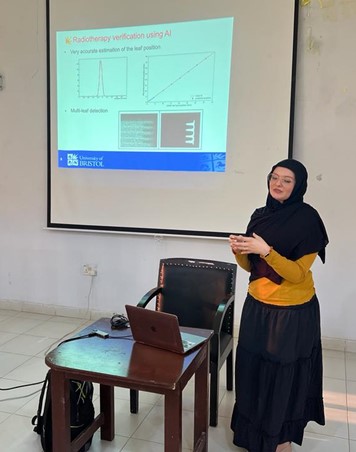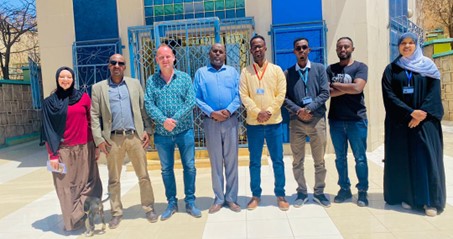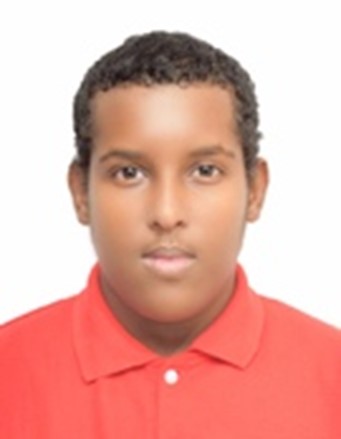Somaliland is self-declared independent from Somalia: it has been autonomous since 1991 but is internationally unrecognised. It is democratic and has among the highest levels of poverty in the world. Somaliland’s government and industry have recognised that ICT is a great opportunity for sustainable economic development. Somaliland has all key attributes to develop in this sector bar one. The key ingredient that is missing is local, skilled workers. This is a key issue identified by the local government and business community.
| Prof Velthuis and Dr De Sio from the UoB particle physics group travelled to Hargeisa to start a project with the University of Hargeisa, UoB’s strategic partner Transparency Solutions and local industry partners including Telesom and NGOs like Candlelight and ADAM Academy to boost capability in data analysis and data intensive research. More information on the project can be found here. |
|
Data Science Course
Dr De Sio and Prof Velthuis delivered a course on Python programming and Machine Learning to students coming from universities, NGOs and industry. The course covered Python Programming from the basics to experienced user level and provided an introduction to Machine Learning techniques. After an initial in person lecture at the University of Hargeisa, the course was taught in 15 online lectures and assessed by two assignments.

Applications talks
The lectures were accompanied by 10 lectures from experts working in the field to show applications of data science.
- Mr Mark Gibbons – How we use data at the Centre for Sustainable Energy
- Dr Richard Hugtenburg – Monte Carlo in medical physics
- Dr Jaya Chakrabarti – Project VANA: AI, data and the environment
- Dr Daniel Saunders – Data Science Applications: from Physics, to Gaming, to Crime Fighting
- Dr Christian Thomay – Data in the Cockpit: Enhancing Pilot – Training with Eye Tracking and Data-driven Feedback
- Dr Valerio Maggio – Teaching Machines to Recognise Emotion. An interactive online system to showcase human-in-the-loop AI
- Dr Sudan Paramesvaran – The data challenge at CMS
- Mr Dan Laasna Reuter – Why data is sexy
- Dr Chris Lucas – AI in Practice
- Dr Leonor Frazão – Using AI to Fight Financial Crime
Assessment
The course was examined through two assignments. Successful completion of the first assignment was required to pass the course. This required analysis of data obtained with the HiSPARC detector network. The second, more advanced, assignment required analysis of the number of phone operators required in a call centre or analysis of travel times in a lift. Successful completion of the second assignment was required to pass the course at the advanced level.
The candidates who successfully completed the course were:
|
|
The candidates who successfully completed the course at the advanced level were:
|
|
More information on the project can be found here.




